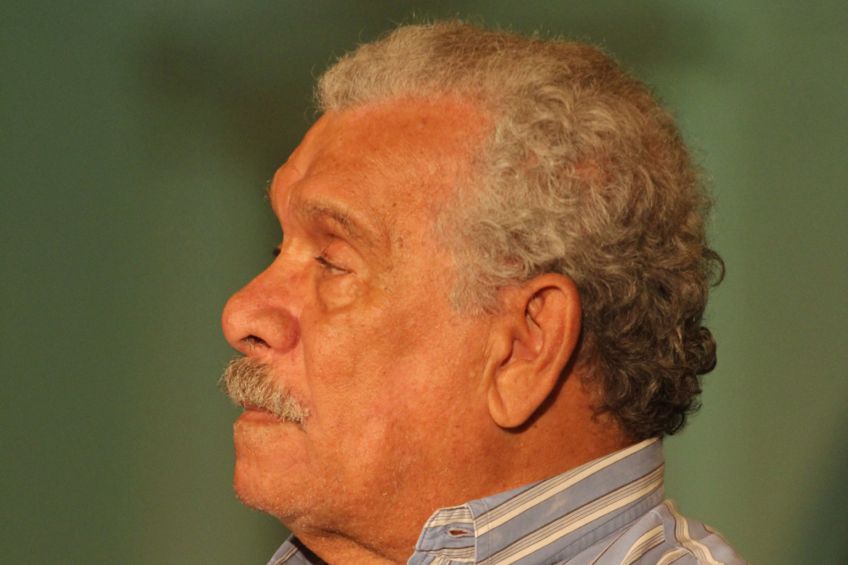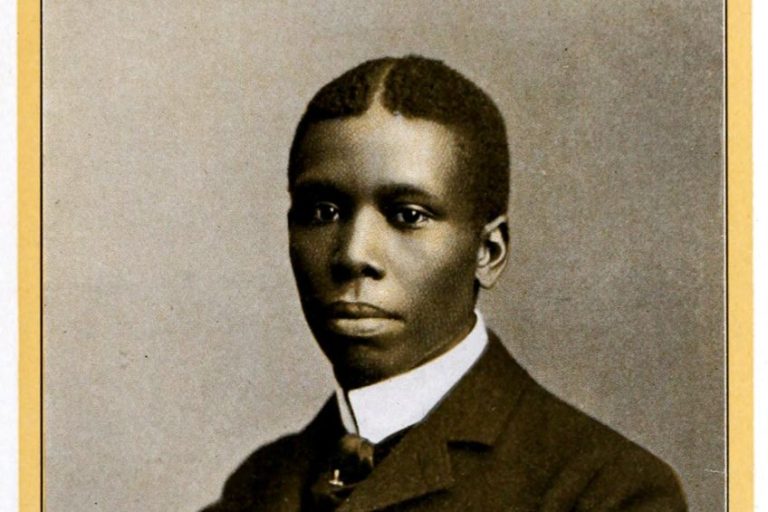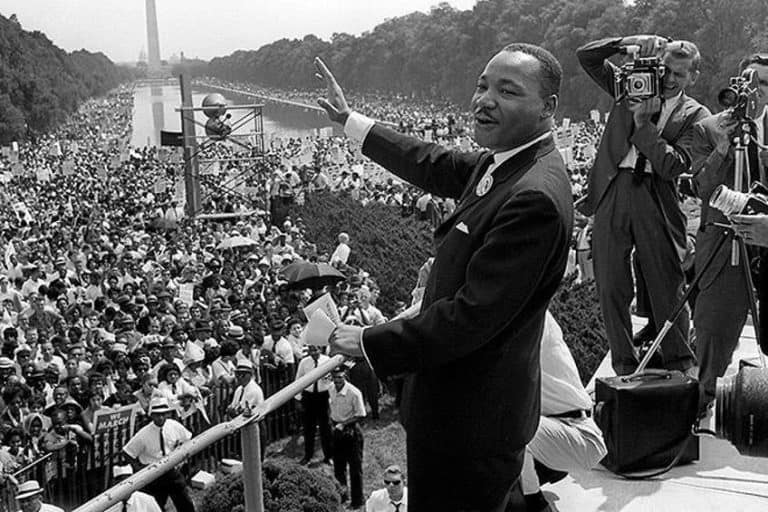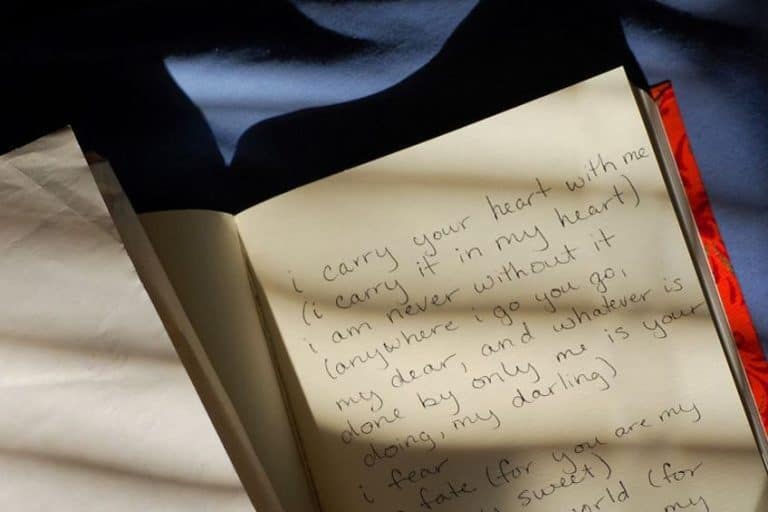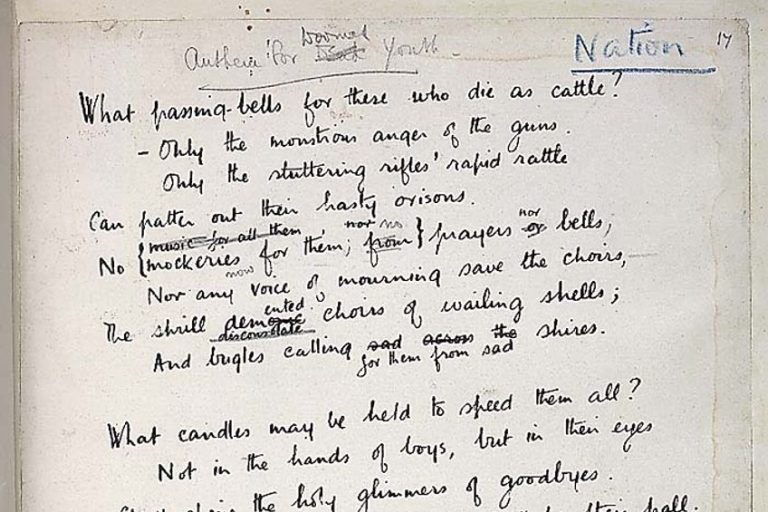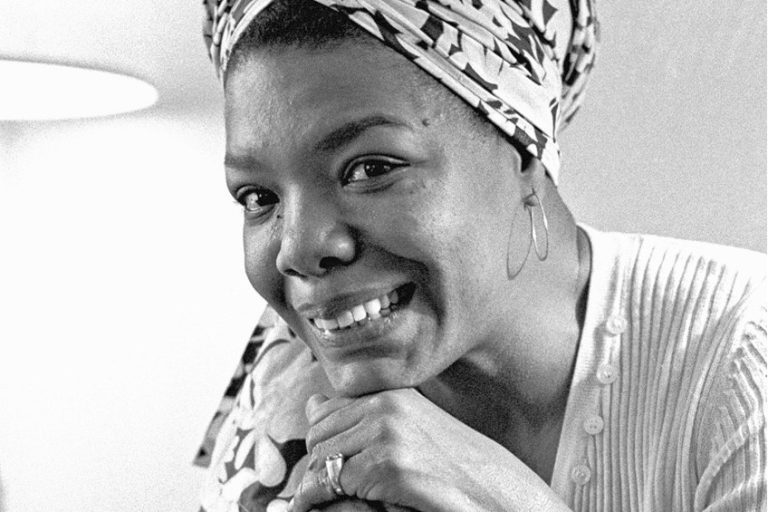“Love After Love” by Derek Walcott – Explore This Poem
Our focus for the day will be on a Love After Love by Derek Walcott analysis, and the reason for this is because it is a phenomenal poem that examines ideas related to an introspective understanding of ourselves. There certainly have been many poems out there that have explored similar ideas, but this is a particularly fantastic example of the form. If you find yourself having any level of interest in a Love After Love by Derek Walcott analysis, then you probably shouldn’t look any further because I’ve got you covered!
Table of Contents
Love After Love by Derek Walcott Analysis
| Date Published | 1976 |
| Type of Poem | Free verse poem |
| Rhyme Scheme | None |
| Meter | None |
| Topic | Self-acceptance and introspection |
The work of Derek Walcott has been influential in a variety of fields because his work also tends to have a large amount of academic interest that surrounds it. A large swath of his writings can be considered to be part of the field of postcolonialism. However, that is not as much the case when it comes to Love After Love by Derek Walcott. Regardless of this, the poem is a worthwhile instance of introspective poetry, but the only way you could really know that is if you keep reading this article. Perhaps, you could even start off with the summary that follows from this very section.

Love After Love by Derek Walcott Summary Points
Everyone loves a decent summary, right? A good summary can be a great way to learn about a topic without having to read far too much. However, a summary is also very limited in what it can offer you, and so I would recommend that you check out this summary but then move on to the Love After Love by Derek Walcott analysis that follows:
- Love After Love by Derek Walcott is about introspection. There are a number of general themes that are explored in this text, and they tend to revolve around the idea of understanding oneself and learning to be who you are meant to be. There are ideas around personal transformation and improvement that can be found within this text.
- Love After Love by Derek Walcott is a free verse poem. This means that when it comes to the general structure of the poem, it does not conform to the standard rules of poetry. It does not use consistent metrical structures, rhyme schemes, or consistent line lengths within each of the stanzas.
- Love After Love is one of the best-known Walcott poems. While Derek Walcott certainly has produced a number of other fantastic poems, he is also often known for his plays. And so some of his best-known work is in the theater as well as being found on the printed page.
This poem is considered to be one of the greatest that Walcott ever produced, but if you want to know a little more about Derek Walcott himself, you should probably get into the next section of this article.
Here we discuss the author and his works in a little more detail.
Biography of Derek Walcott
| Poetic Movement | Postcolonialism |
| Years | 1930 – 2017 |
| Place of Birth | Castries, Saint Lucia |
| Known For |
|
Derek Walcott was a Caribbean poet and playwright who hailed from the island nation of Saint Lucia. His work would go on to be seen as some of the most important in the postcolonial tradition and has had a large influence on many writers around the world. He is also a highly celebrated writer who received numerous awards throughout his life, such as the Obie Award in 1971, the T.S. Eliot Prize in 2010, and the Poetry Lifetime Recognition Award in 2015. However, his highest acclaim came in 1992 when was awarded the Nobel Prize for Literature. Regardless of these accolades, he was not without controversy as there were several decades of sexual harassment allegations that were levied against him, with some of the first being noted in the early-1980s. He would ultimately pass away in 2017.

An In-Depth Love After Love by Derek Walcott Analysis
To examine Love After Love by Derek Walcott and provide an analysis, I should first stop to have a quick look at the structure of the poem in question. This text is a free verse poem, and that means that it does not make use of many of the rules that we have generally come to associate with more traditional strands of poetry. There are no standard metrical structures at play in this poem and so the different lines that make up this text are all of varying lengths.
In addition to this, there is no rhyme scheme to speak of and each of the lines is instead intended to be written more like natural speech than conforming to the sorts of rules that we have often come to associate with poetry in general.
This also all indicates that in this Love After Love by Derek Walcott analysis, we will not see the poem itself conform to any specific poetic variety, like a sonnet. With all of these notes out of the way, it’s about time that we get into the reading and analysis of this poem. The general themes of introspection and self-understanding will play a central role, and so that should be remembered as we get into things as I go over the four stanzas that make up this poem.
Stanza One
The time will come
when, with elation
you will greet yourself arriving
at your own door, in your own mirror
and each will smile at the other’s welcome,
We get to the very first line of this first stanza and we are given a more mysterious statement about a future of some kind. It simply tells us that there will be a time at some point when something happens. That something is still a mystery to us. However, the next two lines operate alongside one another through the use of enjambment and so make up one thought together.

This thought is that when this mysterious time comes, you will be greeting yourself. You will finally have that introspective meeting with yourself, and you will arrive at that meeting with elation. This is a very peculiar thing to explore as it is, obviously, physically impossible to actually have a meeting with yourself, but it points toward something that can happen to us as we get older. Once we have aged to a certain extent, we can start to actually know ourselves. It takes us a while to become someone, and only once we have become someone stable and solid, can we hope to take a look at who that person is.
The next line, which is the second to last line, reiterates this by stating that you will arrive at your own door and in front of your own mirror. This implies that there may have been a kind of invitation provided to yourself that will eventually occur and, on the other hand, the mirror provides the image of reality here. This is not necessarily an actual meeting with the self, but an extension of a look in the mirror.
The mirror is a thing that physically reflects our bodies back at us, but it does a lot more than just that. Instead of simply being a physical reflection, the mirror stands as an item that lets us truly see ourselves as others might see us.
This is why the mirror can also often make us unhappy. We can see our imperfections in a way that we can never hope to do when there is no mirror. However, the final line here tells us that we should not worry about this sort of thing. Instead, we should be happy about this prospect of self-meeting because we will smile at ourselves and enjoy the chance to be there with our own metaphorical reflection.
Stanza Two
and say, sit here. Eat.
You will love again the stranger who was your self.
Give wine. Give bread. Give back your heart
to itself, to the stranger who has loved you
The next stanza picks up right where the last left off. This reads as if it could have been a part of the previous stanza. It opens with the speaker telling us that when we do finally invite ourselves in for that meeting, we will encourage them like a visitor. They can sit with us at the dinner table for a meal. This immediately has an association with the idea of conversation and pleasant company. That is the kind of person who you would invite in for a meal, after all.

So, this figure of the self would be viewed as something of a friend. However, the poem, in the second line, also states that this self is a stranger. They are someone that you need to learn to contend with in your life if you have any hope of truly understanding yourself. The self here is positioned as something simultaneously you and not you. This is, for instance, easiest to understand examining yourself in the past. Imagine yourself when you were a kid. Do you see that child as the same as you are now? Were they an entirely different person?
The third and fourth lines work alongside one another as it gives a list of things that should be given to this visitor. You should give them wine and bread, and these are the kinds of things that also have certain biblical associations with them. Breaking bread and sharing wine. This is exactly the sort of hospitality that we might expect to be able to give to our friends if they were to visit us.
And the final thought in this section, before the second half of the last line, is that you will also give this self your heart.
To give away the heart is a common expression when it comes to the notion of love. The self is someone/something that you should love. You should be willing and able to share your very being with them because they are a part of you, and you are a part of them. And the last section here also reaffirms that kind of mentality because the stranger is stated to be someone who loves you. You should reciprocate.
Stanza Three
all your life, whom you ignored
for another, who knows you by heart.
Take down the love letters from the bookshelf,
The third stanza connects back to the second stanza as that final section of the last stanza tells us that the stranger has always loved us, and this stanza opens by stating that they have done so “all your life”. You may not have loved them, but they certainly were around for you. And the first line also tells us that we have probably ignored this stranger even though they have loved you.

Instead, we have loved others. We have not loved ourselves, and the second line affirms this by stating that the stranger is the one who knows us best. They know our heart, after all. So, the fact that we have pushed them away is a terrible thing indeed. We should have been there to hear them and to support them, and they may have done the same with us. In keeping with the internal logic of the poem, the final line of this stanza bleeds into the first line of the next. So, I will discuss that in more detail below, but it starts by telling us that we need to find our love letters.
This starts the examination of our personal and sentimental artifacts.
Stanza Four
the photographs, the desperate notes,
peel your own image from the mirror.
Sit. Feast on your life.
As was stated above, the last line of the previous stanza told us to find our love letters, and the first line of this one says to do the same with our photographs and notes to ourselves. These items hold our memories. They show us the changes that we have undergone in our lives, and they allow us to see how much we have grown as we have lived through it all.

The second line tells us that we must find ourselves in the mirror, our stranger, or selves, and we must finally, as the final line tells us, sit there and truly look back on who we are. The feast at the table with ourselves, where we break bread and share wine, is a feast on ourselves. We must look back on everything and nourish ourselves with our own self-reflection and an understanding of who we are in this world.
The Themes of Love After Love by Derek Walcott
When it comes to our Love After Love by Derek Walcott analysis, it can be useful to stop off after the more line-by-line examination to look at things from more of a big-picture view. In this case, we should attempt to understand some of the major themes that are at play within this poem. The primary areas of interest to examine when it comes to this particular poem is to look at the text from a sense of introspection. The poem explores ideas related to the self, such as understanding and accepting oneself. Along with this, we can see ideas related to becoming content with ourselves while learning to grow and transform over time.
These are some of the notable points in this particular poem.
The Other Work of Derek Walcott
Derek Walcott was indeed known for writing poetry, but it is not necessarily what he is even best known for, because he was also an important and well-known playwright. Some of his best plays are considered to be those like Dream on Monkey Mountain (1970) and Pantomime (1976). However, his work extended even further than only into the realms of the necessarily creative. In addition to plays and poems, he was an academic. He wrote a variety of essays and critical pieces. He wrote on a wide array of topics, such as literature and politics. This helped to solidify his place as an important figure in the world of literature for decades. The influence that Walcott exerted on many different fields cannot be overstated.

There are many introspective poems out there, but many would attest that Love After Love by Derek Walcott is one of the best that has ever been written. Perhaps you feel in a similar way, but perhaps not. This article has attempted to provide an analysis of this poem alongside some other discussions about Walcott himself and the themes of the poem in question. However, there is a lot more of his work out there that is worth examining, and all you need to do is find it!
Frequently Asked Questions
What Is Love After Love by Derek Walcott?
This is a poem that focuses on ideas related to the introspective understanding of the self. It is a poem that explores what it means to have a self and to learn and grow as a person. This poem is also considered to be one of the best that Derek Walcott ever produced, and he is seen as one of the most important figures in the postcolonial tradition.
Who Was Derek Walcott?
Derek Walcott was a Saint Lucian writer who is best known for his poetry and plays. He has come to be seen as one of the most important writers in the postcolonial tradition, and he would even go on to become the recipient of the 1992 Nobel Prize in Literature. His work has continued to be enjoyed and analyzed to this day, although he was not controversy-free in his life and had numerous sexual harassment allegations leveled against him over the years.
What Are the Themes of Love After Love by Derek Walcott?
The primary themes that you would find in a Love After Love by Derek Walcott analysis are those to do with introspection. The poem wants us to learn to have a sense of self-understanding and acceptance, to learn how to grow and transform, and to find some sense of inner peace. These themes are explored deftly despite the relative shortness of the poem in question.
What Did Derek Walcott Write Other Than Poetry?
Derek Walcott may have written a lot of poetry, but he also wrote plays, and they are often seen as some of the most important and noteworthy pieces that he ever wrote. However, he also wrote a lot more than only creative work. In addition to all of this, Walcott was also an academic and wrote numerous essays and works of criticism. So, the work of Derek Walcott was vast and multifaceted.
What Are the Other Poems of Derek Walcott?
Derek Walcott wrote many poems during his life, and some of the most notable include A City’s Death by Fire (1962), Another Life (1973), and Omeros (1990). However, it should always be noted that while he did write many great poems, he was also a playwright and academic. So, when examining the full selection of literature that he produced, looking at his poetry alone is far from enough.
Justin van Huyssteen is a freelance writer, novelist, and academic originally from Cape Town, South Africa. At present, he has a bachelor’s degree in English and literary theory and an honor’s degree in literary theory. He is currently working towards his master’s degree in literary theory with a focus on animal studies, critical theory, and semiotics within literature. As a novelist and freelancer, he often writes under the pen name L.C. Lupus.
Justin’s preferred literary movements include modern and postmodern literature with literary fiction and genre fiction like sci-fi, post-apocalyptic, and horror being of particular interest. His academia extends to his interest in prose and narratology. He enjoys analyzing a variety of mediums through a literary lens, such as graphic novels, film, and video games.
Justin is working for artincontext.org as an author and content writer since 2022. He is responsible for all blog posts about architecture, literature and poetry.
Learn more about Justin van Huyssteen and the Art in Context Team.
Cite this Article
Justin, van Huyssteen, ““Love After Love” by Derek Walcott – Explore This Poem.” Art in Context. March 19, 2024. URL: https://artincontext.org/love-after-love-by-derek-walcott/
van Huyssteen, J. (2024, 19 March). “Love After Love” by Derek Walcott – Explore This Poem. Art in Context. https://artincontext.org/love-after-love-by-derek-walcott/
van Huyssteen, Justin. ““Love After Love” by Derek Walcott – Explore This Poem.” Art in Context, March 19, 2024. https://artincontext.org/love-after-love-by-derek-walcott/.


